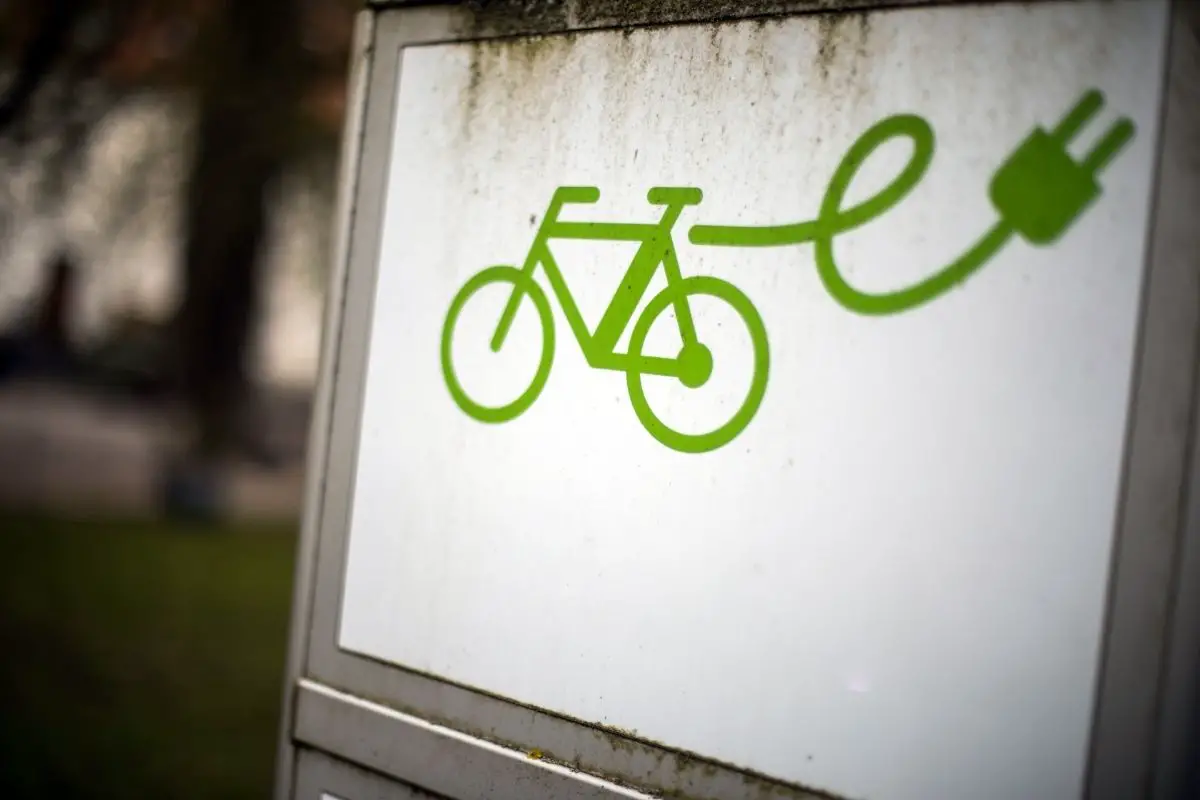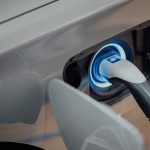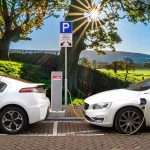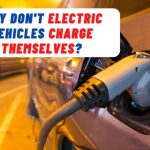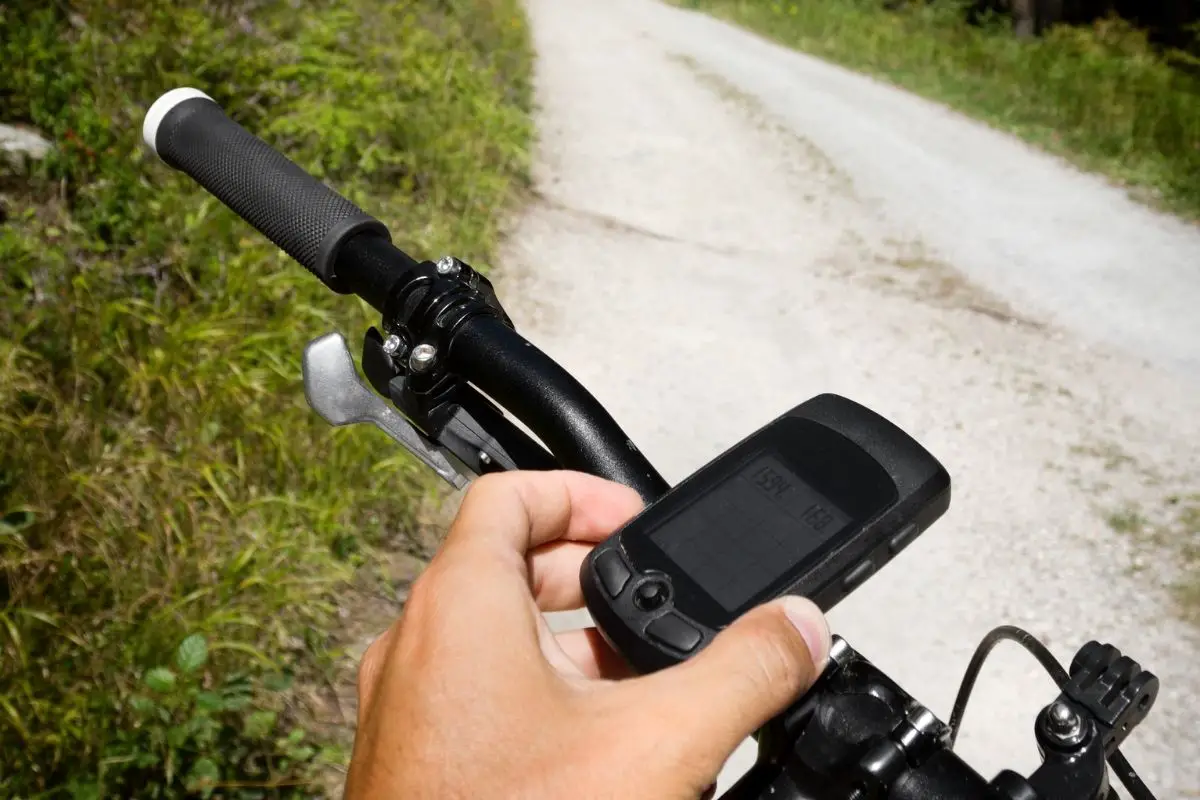Last Updated on June 10, 2022 by
Luckily for those of us who do own electric vehicles, it is indeed possible to charge electric vehicles in the rain. Ultimately, manufacturers of these vehicles are liable for what they create, so they have to think ahead to any and all scenarios – that includes charging the vehicles in inclement weather conditions.
So you’ve come home from doing some errands or going to work. You realize on the way home that your electric vehicle needs charging. You’re just getting ready to put your vehicle on charge, but you encounter a problem – it’s starting to rain!
So what do you do when your electric car needs charging and there’s rain outside? Not every electric vehicle owner has a garage that they can use. You may be wondering if it’s even possible to charge an electric vehicle in the rain. Well, that’s what we’re here to answer today!
Here are all of your questions about electric cars, rain and water in general answered!
Video – Charging your EV in the rain
Can I Charge My Electric Car In The Rain?
So here’s the million dollar question – can you actually charge an electric car in the rain? It’s a vital thing to ask, especially if you live in a location that’s prone to bouts of rain.
If you have an outdoor electric vehicle charging unit, then it’s likely that it is designed to be used in any weather condition. They are made to be able to withstand the rain.
Neither you nor your car will be damaged by charging the vehicle in the rain. In essence, short of doing something incredibly stupid, it’s highly unlikely that you will be electrocuted thanks to your EV, regardless of what the old wives tales would tell you.
You’d have to do something pretty dumb to get that outcome, and charging your vehicle in the rain does not fall under the ‘pretty dumb’ umbrella.
Is It Safe To Charge an Electric Car in a Thunderstorm?
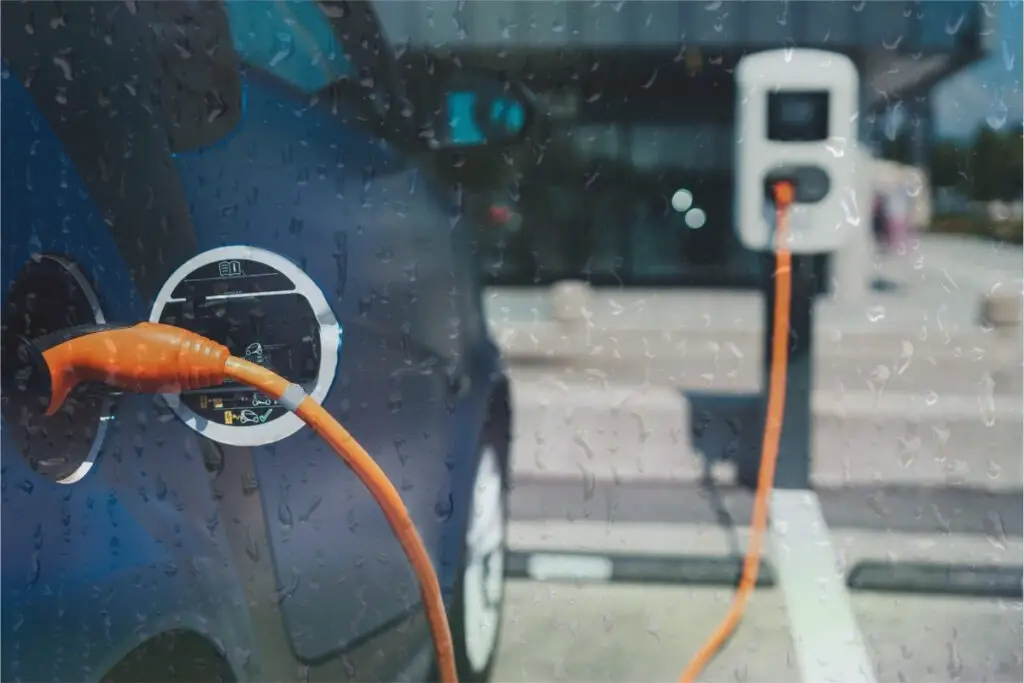
Okay, so we’ve established that it’s fine to charge an electric car in the rain, but what about in a thunderstorm and when there is lightning outside?
Thankfully, the answer to this question is yet another risk. While there are some risks with lightning and your electric vehicle, it’s actually totally safe to charge your electric vehicle in a thunderstorm. This is because of some great forward thinking by the manufacturers!
Basically, any electric vehicle that’s safe to be on the road will need to be tested before it leaves the showroom. Every electric vehicle in circulation needs to have surge protection – this is important because it helps to ensure that your vehicle won’t be subject to sudden, dangerous bursts of excess power.
While it is possible for these systems to fail, it is incredibly rare. With that in mind, you can rest easy if you need to charge your vehicle but it’s a thunderstorm outside.
Can You Drive an Electric Car in the Rain?
If you need to pop out of the house and it’s raining outside, fear not – you can actually drive an electric car in the rain. It is a common myth that it’s not safe to do so, but it is simply that – a myth.
Electric cars are tested to ensure that they can be driven in the rain, as we mentioned previously. For that reason, you shouldn’t be worried if you need to leave the house when it’s raining.
Can You Drive an Electric Car Through Water?
Okay, so what if driving your EV through a huge puddle of water or through a flood is unavoidable? Will you have to back up and go back home?
While we certainly don’t recommend driving any vehicle through large bodies of water if it can be avoided, if it’s absolutely necessary then yes you can drive an electric car through water.
You may be concerned about the water and the electrical components inside of the car, but don’t worry. These vehicles are made to ensure that the battery cells inside of them are well concealed inside of the body of the car so that they don’t get damaged when the weather is wet.
It would be quite difficult for water to get close to the battery in the car, though it is always possible. For instance, if you for some reason chose to drive through your local river, it may be more likely to happen then.
Can You Take An Electric Car Through a Car Wash?
Speaking of water and your electric car, is it possible to take your electric car through a car wash? It is indeed! Thankfully, you don’t need to worry about your car remaining filthy all the time. Your car can enjoy a good scrubbing just as much as your average car.
Electric cars are made subject to something called a soak test. With a soak test, cars are doused in water and the manufacturer checks to ensure that there aren’t any leaks. If there are leaks then these are fixed before the vehicle is shipped.
So, next time you’re tempted to go to a car wash, don’t hesitate – make your vehicle look shiny and new!
Can You Wash an Electric Car While It’s Charging?
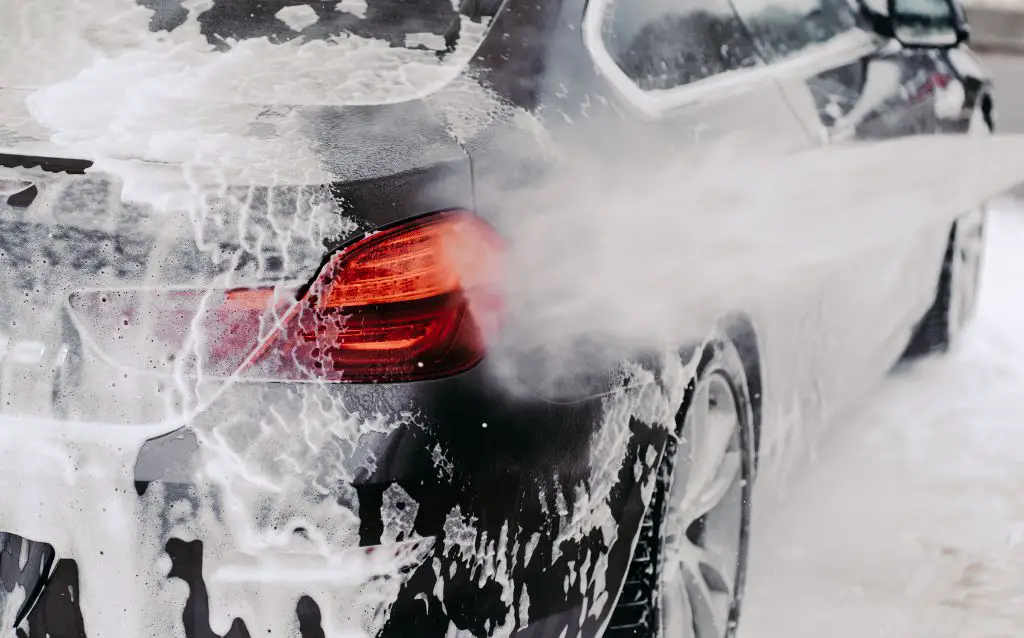
As we’ve already pointed out, you can charge an electric vehicle in the rain. Electric vehicles cope admirably well when they are in the rain.
As a result, it is logical to say that you can indeed wash an electric car when it’s charging. With that being said, it may be better to charge your vehicle when it isn’t being washed, just in case.
Your electric car is pretty sturdy – more than the old wives tales would have you believe! It can deal with all sorts of weather conditions and scenarios. Now, you can rest easy if you need to drive or charge your vehicle and it’s anything less than sunny outside.
Those of you living in countries like the UK now no longer need to avoid buying an EV – they’re totally fine to use in the rain!
FAQ About Electric Cars and Rain
Electric vehicles are automobiles that are propelled by one or more electric motors or traction motors. Unlike gasoline-powered automobiles, they are powered by electricity, which may be obtained from a variety of sources (fossil fuels and nuclear power, but also renewable sources like tidal, solar, and wind power).
Because they have fewer parts than traditional automobiles, they require less maintenance and provide tax savings. Electric vehicles are also simple to charge at home, use renewable energy, and generate no pollutants through their exhaust pipes.
There are numerous advantages to owning an electric vehicle, but like with other things, there are also drawbacks. Electric vehicles require a long time to charge and aren’t capable of lasting on long road journeys. They will also increase electrical demand, and there are now only a few models available.
It is simple to charge an electric vehicle, but it will take some time. Buying a charging station for home use is the most convenient (but also the most expensive) alternative. Your car will always be ready for the morning commute if you charge it overnight.
Are electric cars safe in the rain?
Electric cars are built to drive and charge safely in the rain or snow, but no vehicle should drive on flooded roadways. Because both EVs and gas-powered cars use electricity, auto experts have built both types of vehicles to be safe for drivers to operate in most weather circumstances.
Can electric cars electrocute you?
Car batteries have the ability to deliver huge currents. Despite this, you will not be electrocuted. The answer to this puzzle is that the damage is caused by current flowing through your body, not by the maximum amount a battery can deliver.
Car batteries have the ability to deliver huge currents. Despite this, you will not be electrocuted. The answer to this puzzle is that the damage is caused by current flowing through your body, not by the maximum amount a battery can deliver.
Is it safe to drive an electric car in a thunderstorm?

“We’ve all been advised not to mix electricity and water, but there’s no extra risk of driving in a lightning storm in an EV — they’re just as safe as a gasoline or diesel car.”
What happens if an electric car gets struck by lightning?
Let’s get one thing straight: your electric car is just as safe as any other car, which means nothing bad will happen if lightning strikes it. This means you can drive about in a thunderstorm or under the influence of lightning without risking harm to yourself or your vehicle.
What happens if an electric car gets flooded?
For your safety and to survive harsh weather like heavy rain and flooding, electric vehicles are thoroughly inspected and sealed. If flooded, though, a damaged EV could become extremely dangerous. Because electric cars store a lot of electricity, driving through a flood in one with a severely damaged EV could result in electrocution.
Can electric cars drive in deep water?
Surprisingly, EVs are well-designed and have been well tested to prevent water damage, particularly from the outside. So, if you’re in the middle of a flood, don’t be scared to slam on the gas and speed through it. However, be cautious because severe flooding may cause harm to your vehicle.
Does weather affect electric cars?
EVs lose 12 percent of their range in cold weather, according to AAA’s “Cold Weather Can Cut Electric Car Range by Over 40%,” but the loss jumps to 41 percent with the heater on full blast.
Do electric cars have problems in cold weather?
Cold conditions have an impact on electric vehicles, reducing their range. The amount of range lost is determined by a number of factors, including the car’s original range, its potential range in typical conditions, and whether or not the heat is turned on.
- Why Electric Vehicles Are Not Popular - January 29, 2023
- How Long Do Tesla Batteries Last Per Day? Battery Facts - January 25, 2023
- Do Electric Vehicles Have Air Conditioning? - December 21, 2022

